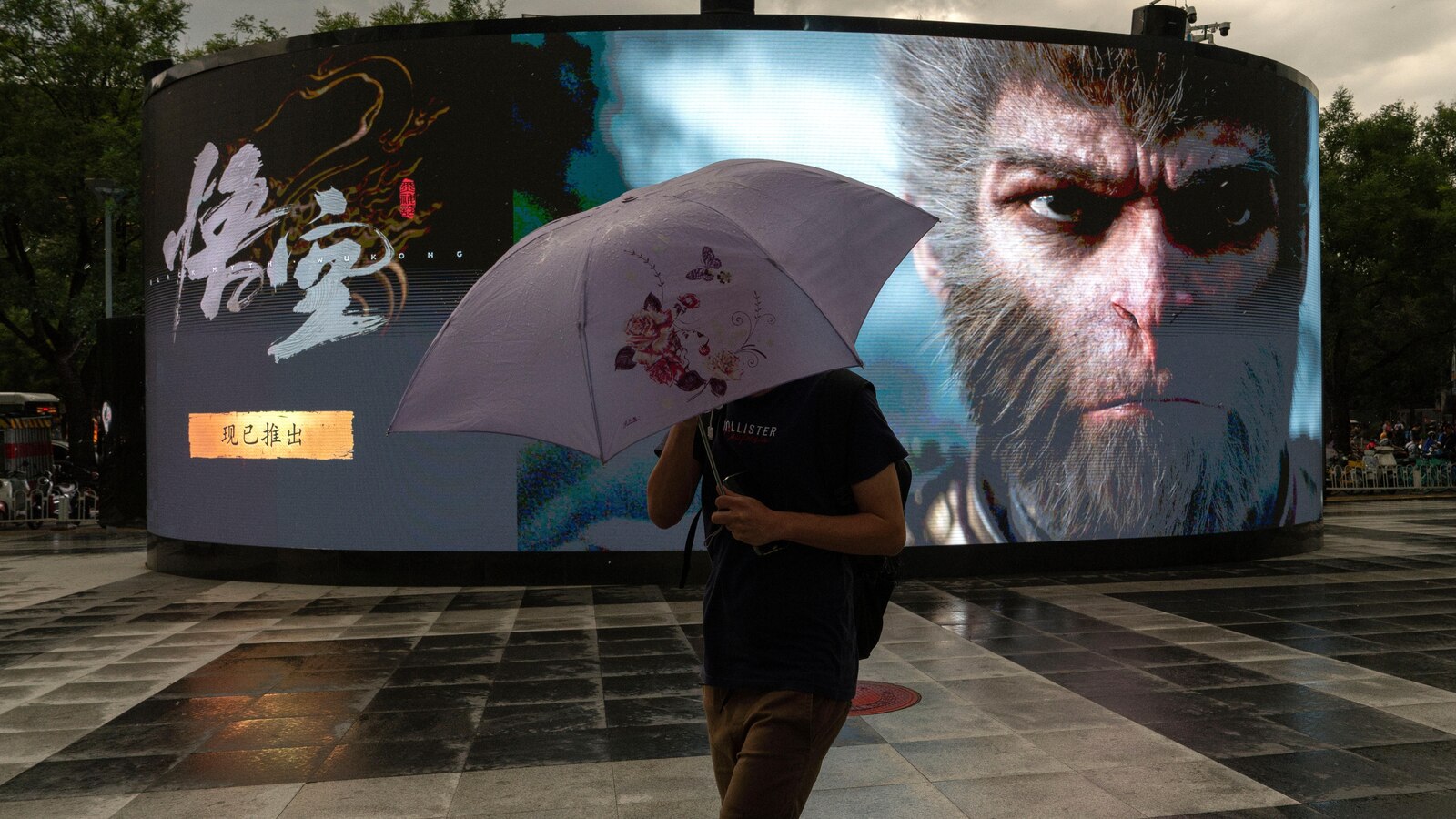WASHINGTON — A new Chinese video game, hailed as a milestone for the country’s gaming industry, has put an unexpected spotlight on long-standing claims of rampant sexism in China’s male-dominated gaming culture.
While some gamers are basking in the runaway success of the action-adventure title “Black Myth: Wukong,” others are voicing complaints about sexism in Chinese gaming and leveling accusations against the game’s Shenzhen-based developer, Game Science, that this offensive posted messages. messages online.
Critics posted screenshots of the messages on Chinese social media platform Weibo, with one compilation receiving more than 400,000 likes. One of the posts, which critics say came from founder Feng Ji, uses descriptions of oral sex as a metaphor for the positive response to the game’s promotional video. Other examples include obscene recruitment posters.
AP could not independently verify the screenshots, although gamers interviewed reported seeing the messages. Game Science did not respond to an email seeking comment and has not publicly commented on the controversy.
The criticism reflects simmering anger among Chinese women in the industry, who say they have long been targets of misogynistic comments and behavior.
Gender inequality is a global problem in the male-dominated gaming industry. Despite making up almost half of gamers worldwide, women only made up about 22% of the gaming industry workforce in 2020, according to Women in Games, a UK-based organization.
Skylar Hu, the only woman on her game engineering team of more than 20 people, said her male colleagues often posted sexual jokes in work chat groups. She said when she told the perpetrators to stop, her messages were ignored.
“Offensive jokes are so common and explicit,” Hu, 23, said in a telephone interview, on condition she be referred to by her English name out of concern for her safety online.
For former video game executive Jessica Hua, the game’s controversy reminded her of the toxic environment she experienced as a woman in the gaming industry.
“A lot of people think it’s just a joke. But I cannot accept such misogynistic comments,” Hua said. “I take it very seriously.”
“Black Myth: Wukong” is China’s first-ever AAA game, a designation for big-budget productions on par with A-list films. The game made history when more than 2.4 million people played the game online simultaneously, breaking the record for the most played single-player game on Steam, a major online gaming platform. Three days after the game’s debut, the game had sold over 10 million copies.
Many in China’s gaming industry say they view the game as a point of national pride, promoting Chinese culture and challenging Western dominance in the industry.
“There is no doubt that this is a milestone in China’s gaming industry,” said Feng Xu, secretary of the Chengdu Cyber Game Industry Association. “It exports authentic Chinese culture by introducing Monkey King to the world.”
China, which famously imposed limits on how long children can play video games and sought to limit excessive spending on online gaming, has shown full support for the ‘Black Myth’. The government of China’s northwestern Shanxi province worked with the game’s developer to promote local tourism. State media have also published a series of articles praising the game.
Feng Xu says he doesn’t think the allegations against Game Science would have much impact on the game’s success. “Political correctness has nothing to do with the game,” he said. “We gamers only play the games, and we only care if the game is good and fun.”
Others say it was only a matter of time before tackling sexism in Chinese gaming culture gained more attention.
“Most game makers are men. You see in many games that women are usually unnecessarily sexy and objectified,” says Ashley Li, cultural critic and gaming enthusiast. “But I think this will gradually change in the future. We have to give it some time.”





















